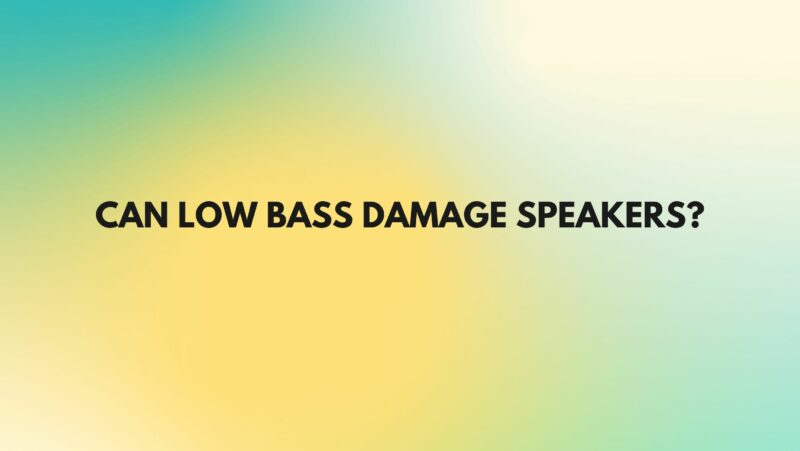Bass frequencies are the heartbeat of music, providing depth and resonance to our listening experiences. However, there’s a common concern among audio enthusiasts and music lovers: Can low bass damage speakers? In this comprehensive article, we’ll explore the relationship between low bass and speaker damage, discussing the factors that come into play and how you can protect your valuable audio equipment.
Understanding Speaker Damage
Before delving into the role of low bass, it’s important to understand how speakers work and the factors that can cause damage:
- Cones and Drivers: Speakers consist of cones or drivers that move back and forth to produce sound waves. These components are responsible for creating air pressure variations that we perceive as sound.
- Power and Amplification: The amount of electrical power delivered to the speaker, determined by the amplifier, influences how forcefully the cone or driver moves. More power can lead to greater movement, producing louder sound.
- Frequency Range: Speakers are designed to reproduce a specific range of frequencies. Woofers handle low-frequency sounds (bass), while tweeters handle high-frequency sounds (treble). Midrange speakers cover frequencies in between.
Low Bass and Speaker Damage
Low bass frequencies, typically ranging from 20Hz to 80Hz or lower, can indeed pose a risk to speakers under certain conditions:
- Excessive Excursion: When a speaker is asked to reproduce very low frequencies at high volumes, it may undergo excessive excursion—meaning the driver moves in and out too far. This can cause the driver to hit its mechanical limits, leading to distortion or damage.
- Overpowering: Sending too much power to a speaker can result in overheating of the voice coil or other components. Low bass frequencies require more power to produce effectively, so overdriving your speaker with deep bass can increase the risk of damage.
- Ported Enclosures: Some speaker designs use ported enclosures to enhance bass response. While these designs can provide deeper bass, they may also increase the risk of damage if the speaker isn’t adequately powered and controlled.
- Subwoofers: Subwoofers are specifically designed to handle low frequencies, and they’re less likely to be damaged by bass-heavy content compared to full-range speakers. However, even subwoofers can be damaged if pushed to their limits.
Protecting Your Speakers
To prevent low bass from damaging your speakers, follow these tips:
- Match Speakers and Amplification: Ensure that your amplifier’s power output matches the speaker’s power handling capacity. Avoid underpowering or overpowering your speakers.
- Use a Subwoofer: If you enjoy deep bass, consider investing in a dedicated subwoofer. Subwoofers are designed to handle low frequencies, reducing the strain on your main speakers.
- Set Proper Crossover Frequencies: When using a subwoofer, set the crossover frequency correctly to direct low bass to the sub and midrange and treble to your main speakers. This prevents full-range speakers from attempting to reproduce very low frequencies.
- Limit Volume Levels: Avoid excessively high volume levels, especially when playing bass-heavy content. Listen at a volume that is comfortable and within the speaker’s recommended operating range.
- Use High-Pass Filters: In some cases, using a high-pass filter can help protect your speakers by blocking extremely low frequencies from reaching them.
Conclusion
While low bass frequencies can potentially damage speakers, it’s important to note that proper equipment matching, sensible listening levels, and the use of dedicated subwoofers can mitigate this risk. Speakers are designed to handle specific frequency ranges, and understanding their limitations is crucial for preserving their longevity and performance. By taking the necessary precautions and practicing responsible audio management, you can enjoy the deep, resonant bass in your music without putting your speakers at undue risk of damage.

